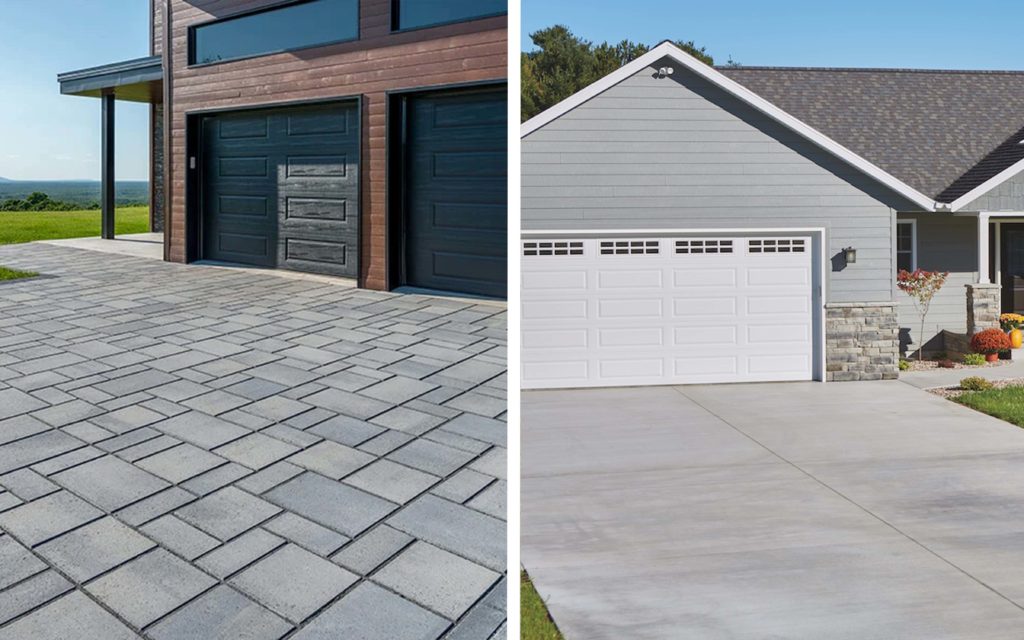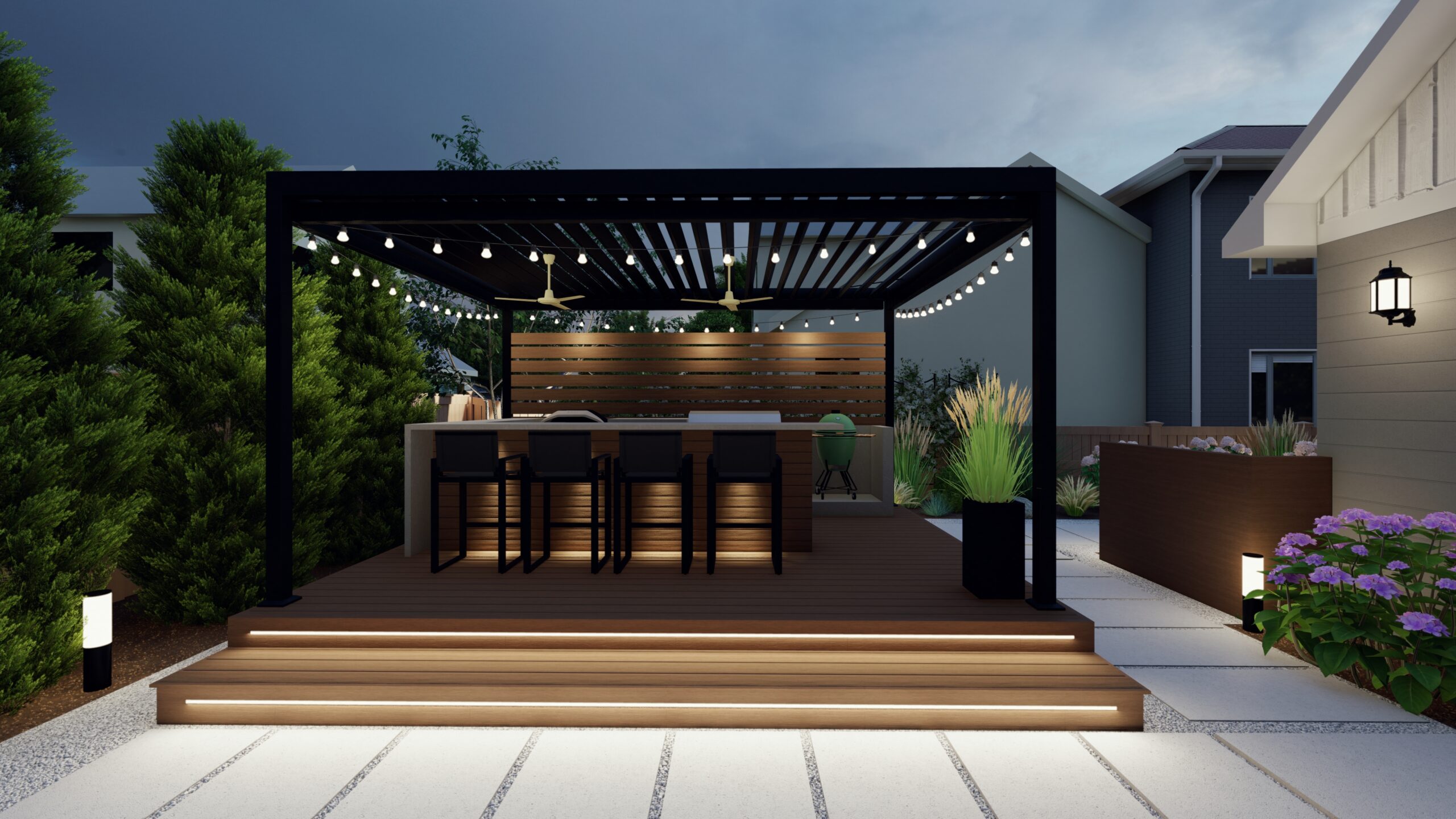Considering between concrete or pavers on your new walkway, driveway or patio addition? Most commonly used paving materials are concrete or pavers. Check out pros and cons for both to help you choose which one you should go with on your next outdoor install.
Installation
Concrete slabs are somewhat easy to install, however the curing process takes time, therefore not usable until the process is complete. Installation process requires excavation, grading, preparation, setting forms, pouring concrete, and screeding it to a professional finish. Pavers have a lengthier procedure to install. It requires excavation, grading, base rock, sand base, edging, polymeric sand and compaction. Due to being more labor intensive pavers are pricier than concrete.
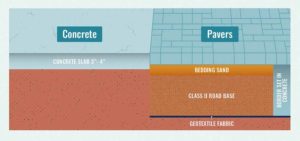
Durability
Pavers are rated four times stronger than concrete due to their aggregate mix and method of interlock. Great benefit of pavers is that the manufacturer often backs up their paving stone with 3 year warranty or even lifetime, so you’re always covered (confirm warranty policy with your local installer). Pavers are extremely flexible and disperse the pressure of weight evenly preventing cracking. Concrete will crack overtime, and is made at a less compressive strength, often 4000 PSI while pavers are made at a minimum of 8,000 PSI. Concrete, known by many as “crack-crete” in the industrial field because it indelibly cracks when the ground below experiences freeze and thaw, a common phenomena in cold region states.
Drainage
When wet, concrete acts similar to a sponge – for example when you spill water on concrete it makes a wet spot before making a puddle. However, when concrete no longer absorbs water it reaches its limit and drains. To encourage drainage in your concrete, grade your concrete accurately and away from your home’s foundation. Pavers are made to drain, and displace water. Pavers can permeate water through the joints. You can also install permeable pavers to direct heavy rainfall into the ground. The base for permeable pavers during installation is different from regular pavers and concrete – made out of open-grade rock base and larger joint separation between pavers. Ask your installer if permeable pavers are necessary for your next project.
Maintenance
With either pavers or concrete, there may be issues with weeds growing through the cracks between joints. You can do spot treatment but can discolor / stain . Brooming or blowing debris, dirt and grime can help with keeping concrete or pavers clean. Both concrete and pavers will look great after being power washed. We encourage hiring a professional power washing service as it can be easy to stain, damage or streak your concrete or pavers. Pavers require little care from time to time. We suggest every 3 years acquiring a professional cleaning and sealing service to protect and preserve your pavers. The sealer on pavers acts like a wax on your car, it can also leave a wet or flat finish on your pavers. Luxury Gardens provides a maintenance package on all paver installs for our clients, ask us to learn more.
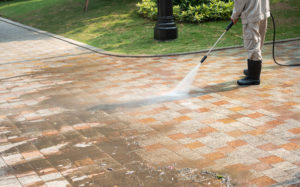
Repairing
If concrete pouring is not done right during installation, it can be a very costly error to fix. Improper grading can lead to ‘low spots’ which will be evident during rainfall and puddles of water accumulate leading to discoloration and staining of concrete. If any settling occurred with pavers, the pavers can be lifted and have the base re-compacted and set back to place with just that area opposed to ripping an entire concrete slab/driveway out. This makes repairs for pavers more affordable without jeopardizing the integrity of the rest of the pavers.
Aesthetic
Finally, the look you may be going for can be the decision factor. Pavers offer endless possibilities with color, texture, and sizes of pavers available. These options are provided by paver manufactures like Unilock and Techo Bloc. When you mix and match pavers your final product can turn out on the front page of a magazine – its amazing the transformation pavers can offer! Concrete can also be warped to offer similar results. Concrete is formed into squares, large rectangles for a contemporary look, and even stamped to mimic the look of natural stone or pavers. However, if you stamped your concrete don’t expect it to last a long time especially on heavy foot traffic areas as it is known to fade and chip over time.
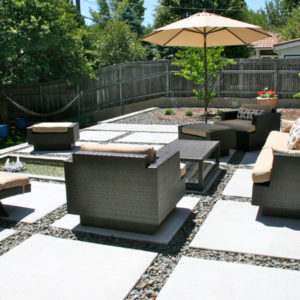
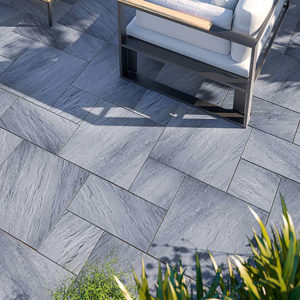
Now that you are more aware of the differences between pavers and concrete hopefully you feel more confident in deciding which one will work for your next outdoor project. Dont’ worry though, Luxury Gardens can consult you for your next project and help you make the right choice.
